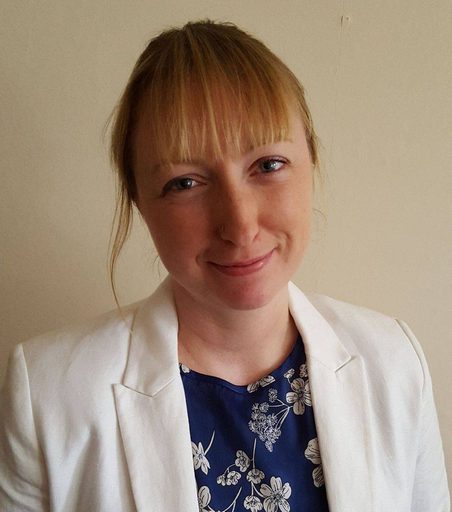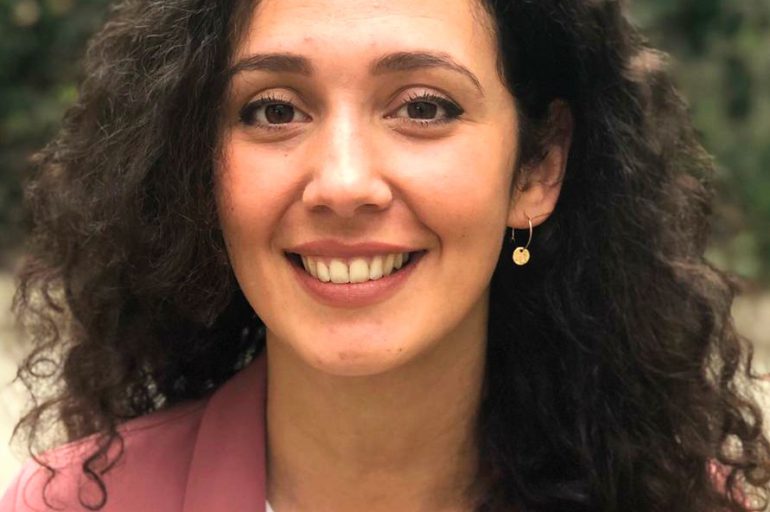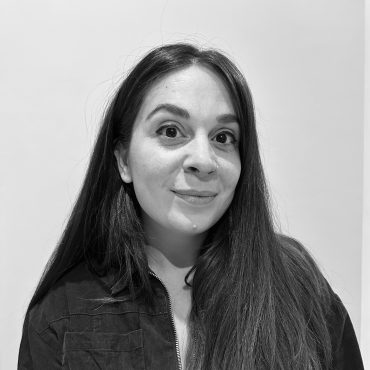 Dr Danielle Jackson CPsychol DPsych MSc PGCert BSc (Hons)
Dr Danielle Jackson CPsychol DPsych MSc PGCert BSc (Hons)
I am a qualified Clinical Psychologist, Chartered by the British Psychological Society (BPS) and Registered with the Health and Care Professions Council (HCPC). I am a member of the British Psychological Society’s Division of Clinical Psychology, Transpersonal Psychology Section and the Faculty for Children and Young People. I am also a member of The Association of Cognitive Analytic Therapy. My Masters degree was completed at University of Leicester and my Clinical Psychology Doctorate was completed at University of Surrey.
Experience
I would describe myself as warm, light-hearted and personable with a desire to create a safe, containing space where clients feel heard and respected. I have over almost 20 years experience of working in mental health. I currently work in an NHS service but also see clients privately in Kent, East Sussex and across the UK.
I have worked across a range of settings including specialist mental health services, inpatient wards, GP surgeries and prisons. This has given me a great deal of clinical experience working with a wide range of different people of all ages with a range of difficulties.
How I work
I take an integrative approach to formulating and working with clients drawing from a range of psychological models and theories to find the best way forward to help clients to achieve their goals. I believe that the therapeutic relationship is an important factor in creating an environment that fosters change, hope, acceptance and understanding.
We will set therapy goals and work collaboratively to help you move towards a better quality of life.
Types of therapies I have used
I have experience of using a range of psychological models and approaches including Cognitive Behavioural Therapy (CBT), systemic, narrative, mindfulness-based approaches, parent-child psychotherapy and Cognitive Analytic Therapy (CAT). I am trained in and qualified to practice Eye Movement Desensitisation and Reprocessing (EMDR). I have experience of offering therapy to individuals, couples and families as well as to groups. I also have skills and experience in neuropsychological testing.
Difficulties I have worked with
I have worked with people to help them manage a range of difficulties including depression, anxiety, OCD, panic and phobias as well as work-related stress, sleep problems, anger, low self-esteem, trauma, eating disorders, child sexual abuse, rape, relationship difficulties, Looked After Children, perinatal work, autism and dementia. My training and experience has left me well-equipped to work with a range of additional difficulties. I am also able to offer ADHD assessments to adults.
Other experience/interests
I have published academic papers on my research in peer-reviewed journals and have presented at national and international conferences. My research interests include spiritual/anomalous experiences, trauma and cultural differences relating to help seeking for mental health problems within the prison population. I have recently submitted a research paper for publication which is under review.
I am a qualified Achieving Best Evidence (ABE) interviewer and have expertise in conducting police interviews with children and adolescents who have made an allegation of sexual assault.
I am also available to offer supervision and consultation.
Dr Kelly Peel-Wainwright – Clinical psychologist 
About me
How I work
Types of therapies I have used
Difficulties I have worked with
Other experience/interests
Giorgia Garozzo
Clinical and Counselling Psychologist – HCPC reg.
About me
I am a passionate and warm Clinical and Counselling Psychologist. I am registered with the HCPC and eligible for membership with the British Psychological Society.
I began my career in psychology in Bologna (IT) where I obtained my doctorate-level qualification in Applied Cognitive Psychology in 2017 from the Alma Mater Studiorum University in Bologna. In 2020 I expanded my studies at the South Bank University (UK) with an additional Masters in Psychology. During my education and training I sought differing perspectives to help me view and understand the complexity of human experiences. From evolutionary, psychoanalytic, dynamic and cognitive lenses, to the newest discoveries in human neuroscience. I also have experience in clinical psychological research, having collaborated with the University of Bologna and conducted clinical studies within the Italian National health system.
How I work
I work using an integrative approach that responds to the needs of the people I work with. The first few sessions are important as I get to know a client, what difficulties bring them to therapy and together we determine our compatibility. We then co-develop and outline therapeutic goals and interventions. I move at my clients’ own pace and value their voice and experiences. The co-creation of a warm and meaningful relationship gently allows my clients to feel contained and safe in being themselves, allowing them to discuss more sensitive topics. I work relationally and therefore I strongly value therapeutic alliance as an important element of the process.
Types of therapies I have used
I use a number of psychological theories and models, including Cognitive Behavioural Therapy (CBT), Dialectical Behavioural Therapy (DBT), Compassion Focus Therapy (CFT) and Mindfulness Based Stress Reduction (MBSR). I do apply psychodynamics techniques and theorical models and I use a person-centred approach. I often offer psychoeducational resources and neurocognitive and neurophysiological research to enhance one’s understanding of self and psychological mechanisms.
I use psychometric testing , if required, and I am trained in neuropsychological assessment, such as the Adult Diagnostic Observation Scale (ADOS).
I have extensive experience in facilitate and co-facilitate psychoeducation and process groups.
Difficulties I have worked with
In my training and work experience I have had the opportunity to work with a wide range of presentations and settings, both in Italy and England.
I work with adults with mood difficulties such as low mood/depression, various form of anxiety, emotional dysregulation, personalities disorders, self-harm and suicidality, IBS, adjustment reactions, low-self-esteem, relational issues, trauma, psychosis and stress-related difficulties. I have experience in working with adults and young people with neurodivergences. I have worked with clients with physical health conditions such as breast cancer and multiple sclerosis. I have experience working with children and young people with special educational needs and challenging behaviours.
Other experience/interests
I am trained as a Yoga teacher for children and young people, an approach that I used when working in school settings. I value the strong interconnection of body and mind and I am interested in holistic approaches that acknowledge and explore the subjectivity and the complexity of the human experience.
 Dr Shreena Ghelani – Clinical psychologist
Dr Shreena Ghelani – Clinical psychologist
About Me
I am a compassionate and thoughtful Clinical Psychologist, with a passion for helping children, adults and families live more fulfilling lives. Driven to practice in a values led way, I am committed to offering sensitive psychology services and am respectful and considerate of areas of difference and diversity. I am registered with the HCPC and eligible for membership with the British Psychological Society. After completing a Psychology degree (BA) at Sussex University I went on to pursue my interest in Clinical Psychology and worked in a range of NHS services before completing my Doctorate in Clinical Psychology (DClinPsy) at the University of Plymouth. I also hold intermediate level training in Family and Systemic Psychotherapy. I have over 15 years experience of working within NHS mental health services and since qualifying, have predominantly worked with children, young people and their parents and carers. However, I enjoy working with people with a range of difficulties, including developmental and complex trauma, relationship
difficulties, anxiety and low mood and physical health conditions. I also have extensive experience of working with those with diagnoses of Autism, ADHD and Learning Disability.
How I work
When we meet, we can set clear expectations and goals to form a foundation of a safe and containing relationship. My aim is to create a space that is open, non-judgemental for us to explore sensitive and difficult material. Initially, we will take time to understand the difficulties that bring you to seek psychological help and develop an understanding of how these problems have come to be ,and what is maintaining them. From this, we can agree a plan of how to begin working on reducing distress and meeting your goals. When working with children and young people, a mix of individual and family sessions will be planned to meet multiple layers of need.
Types of therapies I have used
I have been trained in a number of psychological theories and therapy models, including Systemic and Family psychotherapy, Dyadic Developmental
Psychotherapy (DDP), Non- Violent Resistance (NVR), Eye-Movement Desensitisation and Reprocessing (EMDR), Cognitive Behavioural Therapy (CBT), Compassion Focussed Therapy (CFT) and relational approaches. I may also draw on Cognitive Analytic Therapy and Mindfulness where appropriate.
Difficulties I have worked with
I have experience working therapeutically with a range of presenting difficulties in both adults and children including low mood and anxiety (including social anxiety,obsessive compulsive disorder, panic attacks, generalised anxiety and health anxiety), PTSD and trauma-related distress (including dissociation, emotion dysregulation and flashbacks), relational and interpersonal difficulties and substance misuse. Many clients I have worked with may be working through issues of identity including gender dysphoria and sexuality. I am experienced working with families,
couples and parents and hold expertise in this area. With all clients, we work together, to understand their specific challenges and strengths so as to develop a bespoke plan to reduce distress.
Other experience/interests
My doctoral research used participatory methods to explore resilience factors for people seeking asylum in the UK.
Dr Nicola Tikare – Clinical psychologist
I am a qualified Clinical Psychologist, registered with the Health and
Care Professions Council (HCPC), and eligible for membership with the
British Psychological Society (BPS). My psychology journey started with
an undergraduate degree in Psychology with Criminology at the
University of Portsmouth, followed by a masters degree in Forensic
Psychology at the same University. Following this, I secured work in an
adolescent mental health inpatient service, where I got to work with a
variety of presentations and with adolescents from a range of
backgrounds. This led me to complete my Doctorate in Clinical
Psychology at Lancaster University. Since then I have worked primarily
in both inpatient and outpatient hospital neuropsychology services, with
a wide range of neurological and mental health presentations. I recently
completed a PGDiploma in Clinical Neuropsychology.
Experience
I am a firm believer in the therapeutic relationship and recognise the
importance of feeling safe and contained in therapy. I would describe
myself as caring and compassionate, with a real desire to help create a
space where people feel heard and validated as they journey through
therapy. I currently work in an NHS neuropsychology service, while also
seeing clients privately on a remote basis.
I have worked in a range of settings, including primary care mental
health services, forensic, outpatient and inpatient services. This has
afforded me a range of clinical experiences, with a wide range of people
from various backgrounds and with various difficulties.
How I work
I think collaboration in therapy is important and therefore feel it is
essential to get a good formulation of difficulties as a starting point, and
then agree on goals and therapeutic models. I draw on a variety of
psychological theories and models, depending on a collaborative
decision making process.
I have worked with a variety of psychological models, including
Acceptance and Behaviour Therapy (ACT), Cognitive Behavioural
Therapy (CBT), mindfulness based approaches and Compassion
Focused Therapy (CFT). I also have extensive skills in
neuropsychological testing and rehabilitation intervention.
I have worked with a wide range of difficulties including, but not limited
to, low mood, anxiety, trauma, OCD, panic and phobias, low self-esteem
and adjustment difficulties. I have also worked with people with
dementia, both in terms of neuropsychological assessment to aid a
diagnosis, and in adjustment to a diagnosis of this. I have often worked
within a neurorehabilitation model within my neuropsychology role.
Other experience/interests
My doctoral research was looking at the experience of seizures, both
epilepsy and non-epileptic attack disorder. I have a special interest in
functional neurological disorders and have delivered training on this. I
am currently working towards my qualification in Clinical
Neuropsychology, which would enable me to join the specialist register
of clinical neuropsychologists.
Dr Doug Hobson, BA Hons (First Class), MA, PG Cert, PGDip, DClinPsy
Clinical Psychologist
Background
Prior to changing career paths to work in psychology I spent 4 years working in a corporate management HR role. I feel this has given me an added capacity to relate to clients having difficulties with work related stress or lacking fulfilment in their work.
I have over 6 years of clinical experience of working in the NHS across different settings. This has included working with adolescents, older adults, people with learning disabilities, with children and parents at Great Ormond Street Hospital, and in adult primary and secondary care outpatient services. I am currently working as a Clinical Psychologist in a primary care team in Hertfordshire.
I have a First Class degree in Combined Social Sciences from Durham University and a Master’s in the History and Philosophy of Science and Medicine which specialised in the philosophy of mental health and diagnosis. I obtained my psychology conversion in 2014 and qualified in Low-intensity psychological interventions in 2016. In 2021 I was awarded a Doctorate in Clinical Psychology from University College London
Types of therapies I have used
My primary modality is Cognitive Behavioural Therapy (CBT), and I find this especially useful when working with clients to understand how their thoughts, feelings and behaviours can keep them trapped in a vicious cycle. My clinical training has also given me knowledge and experience of working with a number of other approaches including Acceptance and Commitment Therapy (ACT), Dialectical Behaviour Therapy (DBT), Mindfulness and Narrative Therapy. When formulating I believe in the importance of a systemic way of looking at difficulties which help to ‘externalise’ these as not with residing within the individual, but are influenced by the wider family systems or culture within which they live.
How I work
I am a warm and approachable psychologist and I place a lot of emphasis in building up a therapeutic relationship with my clients, and finding out about their strengths and background to form a joint understanding of what they are seeking support with. I hold my clients in mind between sessions to think of creative ways of tackling their difficulties and working towards their goals. I seek regular feedback from my clients to try and ensure we are getting the right balance between acknowledging difficulties but also bringing about meaningful change.
Difficulties I have worked with
I have worked with adolescents, children (and their parents) and adults with symptoms of Social anxiety Disorder, Panic Disorder, Obsessive Compulsive Disorder, Generalised Anxiety disorder and depression. I have also provided space for clients who are managing difficult life events such as bereavement or the diagnosis of their loved ones with a severe health condition. Similarly, I have worked with carers of people with a dementia diagnosis.
Other experience/interests
My doctoral research was looking at how partners of people with a dementia diagnosis decided to tell family and friends about their diagnosis.
